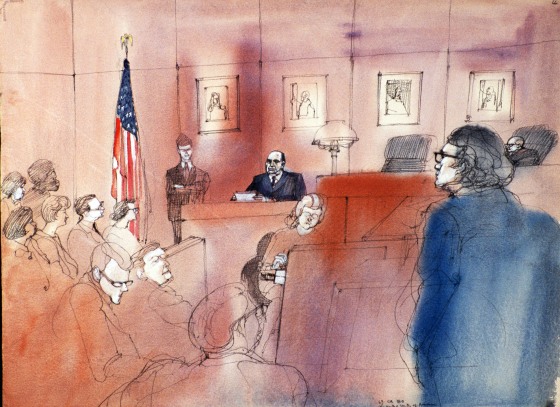There are certain federal employees who are not just going unpaid to perform their jobs during the prolonged government shutdown — they’re paying out of their own pockets to make sure it’s all getting done.
Almost 700 court reporters employed by the federal courts, 16 in the city of Washington alone, are considered essential to performing constitutionally required services, also known as “excepted activities.”
That means those employees are expected to continue working during the shutdown — without pay.
What’s more, those federal court reporters, also known as stenographers — whose transcripts memorialize and make transparent everything that happens in civil and criminal proceedings, big and small — are losing out on the extra income they usually bring in for transforming their shorthand into documents used by judges, attorneys, litigants and, eventually, the public.
The president of the United States Court Reporters Association tells MSNBC that she and her colleagues are paying their support teams out of pocket to “ensure that the attorneys and judges receive the transcripts they need to complete their work.”
Now, in order to make those transcripts available quickly and accurately, some are dipping into their own wallet to pay for it.
Sonja Reeves, a D.C.-based federal court reporter and the president of the United States Court Reporters Association, told MSNBC that she and her colleagues are paying their support teams out of pocket to “ensure that the attorneys and judges receive the transcripts they need to complete their work.”
Because litigating parties need both rough feeds of court proceedings in real time and polished, final transcripts within hours, court reporters rely on subcontractors: proofreaders and editors who make sure the shorthand the reporters have taken is correctly reflected on the record. Without this outsourcing, the reporters can’t finalize transcripts quickly, which is required in trials and other fast-moving procedures.
Transcripts are also vital to the public’s First Amendment right to information about judicial proceedings. While some proceedings allow in-person, Zoom or teleconference observers, transcripts can be the best way for the public to be afforded a peek inside a courtroom.
But these transcript prep services are not without cost, which court reporters charge back to the customers who need them. In federal court, the most frequent customers are typically the Department of Justice and federally funded defense lawyers — who are also currently unable to pay for services.
And during the shutdown, not only are the reporters not getting that extra boost, some have had to pay with their own personal money to make sure the transcripts are made available.
One federal court reporter, who spoke to MSNBC on the condition of anonymity in order to speak freely, said they just worked on a weekslong trial, during which they paid several thousand dollars to editors and proofreaders in order to complete the daily transcripts in a timely, professional manner. Without income from the transcripts themselves — or an incoming federal salary — they say that expense has been hard to bear.

Reeves said that federal court reporters are hopeful they’ll receive back pay for their salaries and that they expect to be reimbursed by federal agencies for the transcripts they provided at their cost.
The Administrative Office of the U.S. Courts, which oversees employment of federal court reporters, was unavailable for comment due to the shutdown.
Transcripts of federal court proceedings are prepared for the actual courtroom participants. But those transcripts are also essential for media coverage of federal court proceedings, especially because federal hearings and trials are, in almost all cases, unavailable via video or livestream, and even when federal judges furnish the public with access via teleconference or other audio, their recording or broadcasting is prohibited.
Just within the past few weeks, the Justice Department has initiated federal criminal cases against three high-profile figures: former FBI Director James Comey, New York Attorney General Letitia James and former national security adviser John Bolton. All three cases are expected to grab enormous media attention in the months to come.
And in just the past few weeks, many of the proceedings directly or indirectly related to government shutdown issues — challenges to cutting off Supplemental Nutrition Assistance Program benefits, for example — have occurred in federal courtrooms, where few if any of the federal employees, aside from the judges themselves, are being paid for their services.

